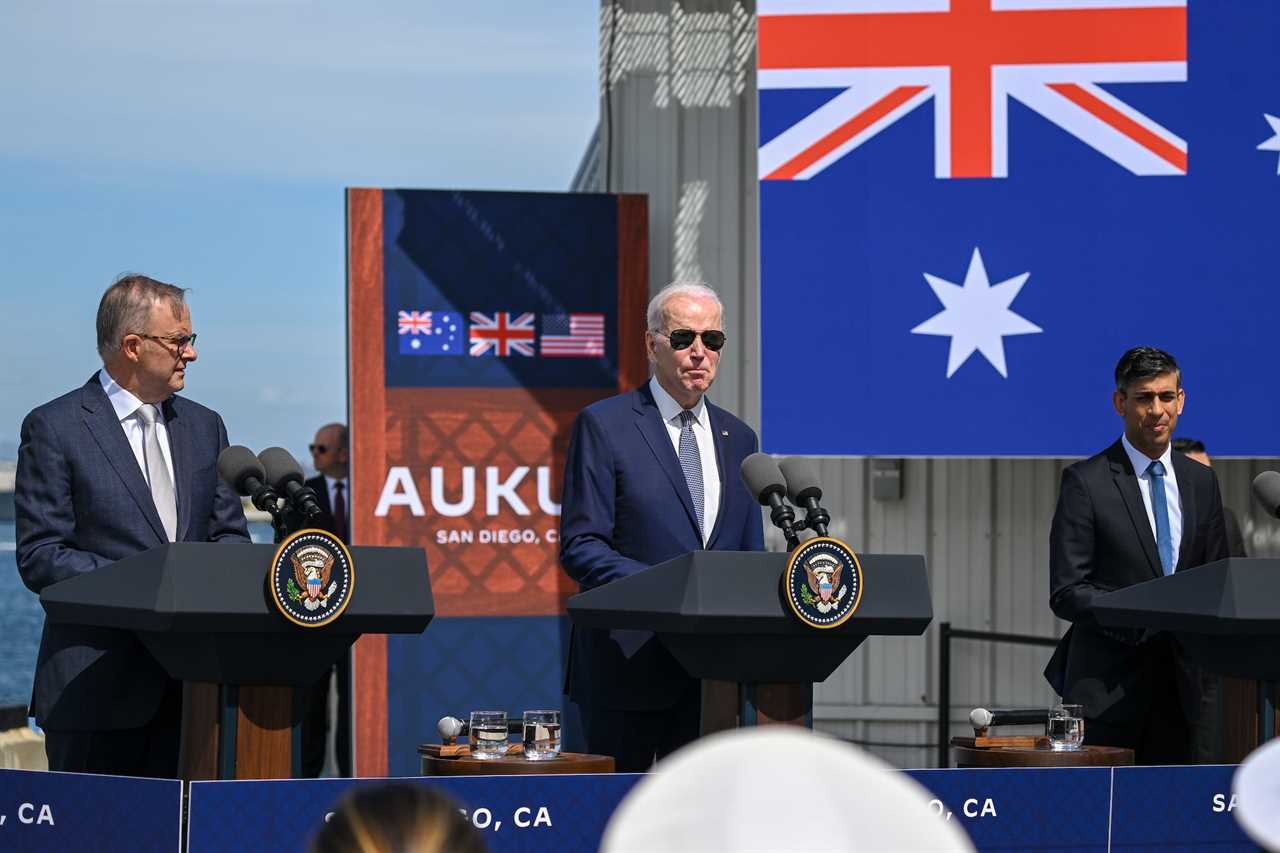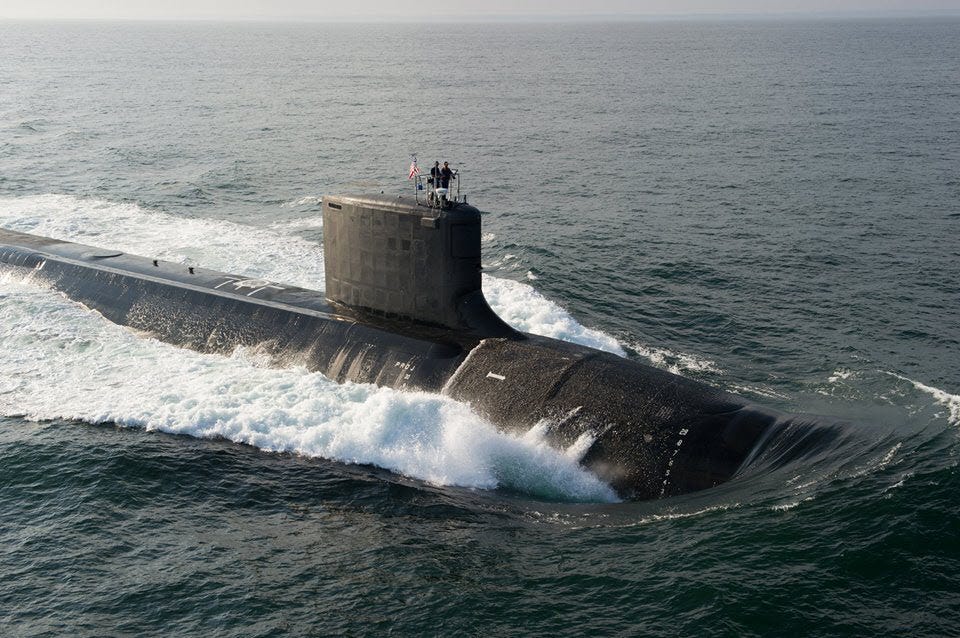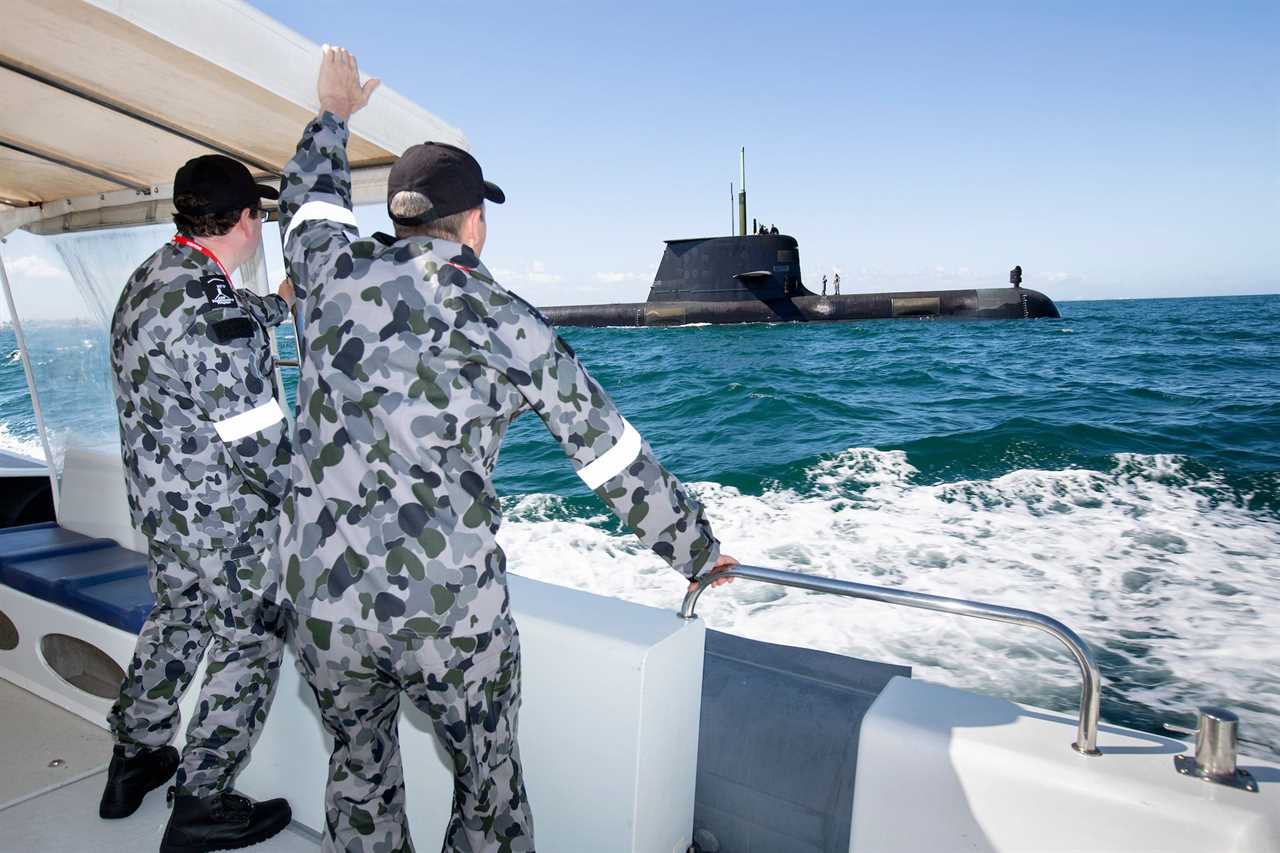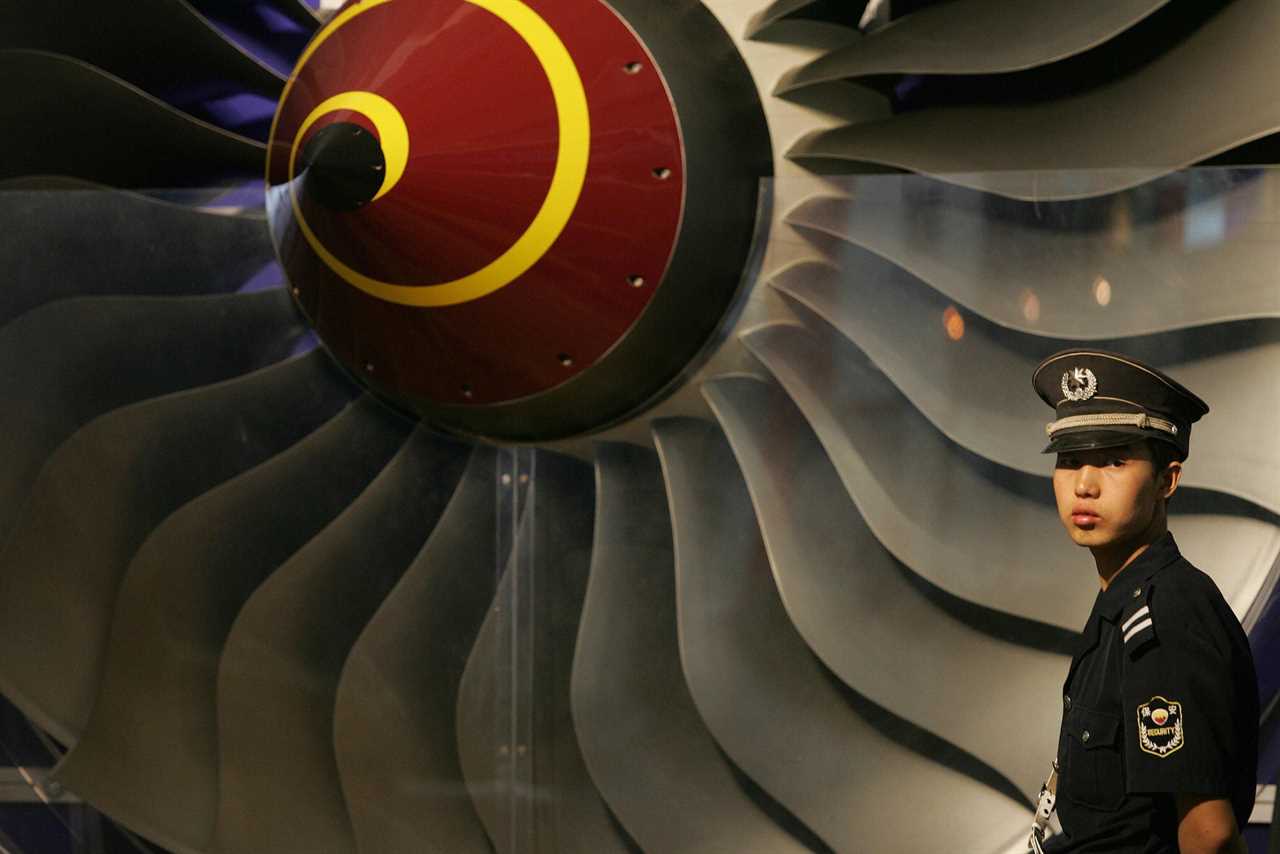US Navy/MCS1 Michael R. McCormick
- Australia is working with the US and UK to build nuclear-powered subs and other military technology.
- The subs are the highest-profile part of the project, but they won't arrive until the late 2030s.
- While the subs are still years from delivery, Australia is already on guard for spying against them.
In 2021, Australia, the UK, and the US shocked many by announcing a trilateral security agreement, called AUKUS, with nuclear-powered submarines at its center.
The deal irritated France, which saw its deal to build subs for Australia scrapped, and raised ire in China, which viewed it as a boost for a rival military alliance.
Australia and France have largely made up, but China remains concerned about the growing military capabilities arrayed against it — especially the advanced subs that are heading to the region.
Australia's new submarines likely won't be delivered until the late 2030s, but Canberra is already looking out for spies who could try to compromise the program.
Counterintelligence and AUKUS

Tayfun Coskun/Anadolu Agency via Getty Image
Australian intelligence officials have identified a dual threat to the AUKUS program: disinformation and espionage.
Disinformation is the deliberate distribution of false information to deceive the target audience. It can be intentional — for example, a foreign intelligence service spreading election conspiracies on social media — or unintentional, as when someone unwittingly shares the foreign intelligence service's social-media posts.
"There's a role for intelligence in identifying efforts that are underway to disrupt the AUKUS initiative through disinformation and manipulation of opinion," Andrew Shearer, the director-general of Australian National Intelligence and head of the Office of National Intelligence, said on a podcast in June.
In the context of AUKUS, Australian officials are aware that disinformation campaigns may seek to exploit misunderstandings of the nature of the nuclear energy that will power their new subs and create malicious narratives to drive misperceptions and public pushback against the program.

US Navy photo
The Australians also understand that they have to maintain security around the AUKUS program and prevent the exposure of its technology — nuclear propulsion as well as other advanced weaponry — that costs tens of billions of dollars. Espionage can be quite expensive for the party being spied on.
Speaking on the same podcast, Mike Burgess, head of the Australian Security Intelligence Organisation, said that "people are already coming after those secrets and looking to interfere with" AUKUS.
US leaders "trust us to protect those secrets. We know that to be true," Burgess said.
The ASIO, Australia's equivalent of the FBI or MI5, is responsible for sabotage and counterintelligence — that is, catching spies.
To ensure the security of AUKUS-related technology, the Australian intelligence community will have to be on top of its counterintelligence game and ensure that information remains compartmentalized among officials who need access and will handle it responsibly.

Royal Australian Navy/CPOIS Damian Pawlenko
Australia's existing intelligence-sharing partnerships could prove very useful for this, as its partners can share information they obtain about potential penetrations by foreign intelligence services. Australia is a member of the Five Eyes signals-intelligence alliance, alongside Canada, New Zealand, the UK, and the US.
Those Australian intelligence officials echoed worries that US officials have about foreign efforts to compromise AUKUS. Some US lawmakers, fearing Chinese espionage, have voiced their concern about where sensitive technology being developed as part of AUKUS may end up.
Submarine programs are high-priority targets for espionage, with a number of countries interested in acquiring advanced propulsion, quieting, and weapons technology for their own subs and in monitoring the movements of their rivals' submarines.
Throughout the Cold War, US submarines and intelligence officers conducted Operation Ivy Bells to tap Soviet underwater communication cables, and in the 1970s the CIA's Project Azorian tried with some success to salvage a sunken Soviet nuclear-powered submarine and the missiles it carried.
Chinese intel operations and Western veterans

PETER PARKS/AFP via Getty Images
In its bid to become a superpower, China has launched an aggressive long-term espionage campaign.
For more than two decades, Beijing has been collecting intelligence on anything of interest to its leaders, including military technology, corporate intellectual property, and even biological information like DNA. US intelligence officials estimate that Chinese espionage steals US economic secrets worth between $200 billion and $600 billion a year.
The Ministry of State Security, China's top civilian intelligence and secret-police agency, is particularly interested in emerging military technology and people with expertise in developing and using it.
Chinese spies have targeted Western military personnel and veterans, especially fighter pilots whose knowledge and experience could help China build a better and more proficient air force to counter Western air forces with more operational experience and extensively trained pilots.
To the surprise of some, Western veterans have been willing to help the Chinese military for the right price. Such recruitment by foreign intelligence services is nothing new, but as the stakes increase, officials are being extra vigilant about sensitive programs like AUKUS.
Stavros Atlamazoglou is a defense journalist specializing in special operations and Hellenic Army veteran (national service with the 575th Marine Battalion and Army HQ). He has a B.A. from the Johns Hopkins University, an M.A. in strategy, cybersecurity, and intelligence from the Johns Hopkins School of Advanced International Studies, and is currently pursuing a Juris Doctor degree from Boston College Law School.
Read More
By: [email protected] (Stavros Atlamazoglou)
Title: Australia's new submarines are still 2 decades away from delivery, but the Aussies are already looking out for spies
Sourced From: www.businessinsider.com/australia-spies-watching-for-espionage-against-aukus-nuclear-submarines-2023-9
Published Date: Tue, 26 Sep 2023 10:57:01 +0000
.png)





